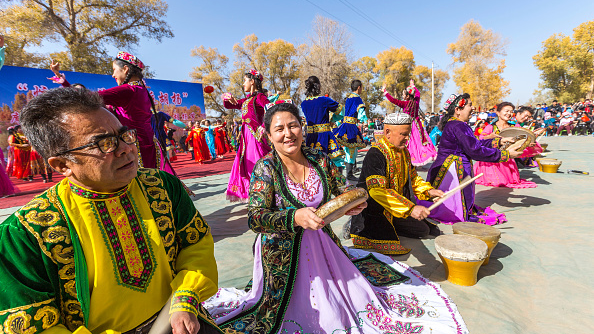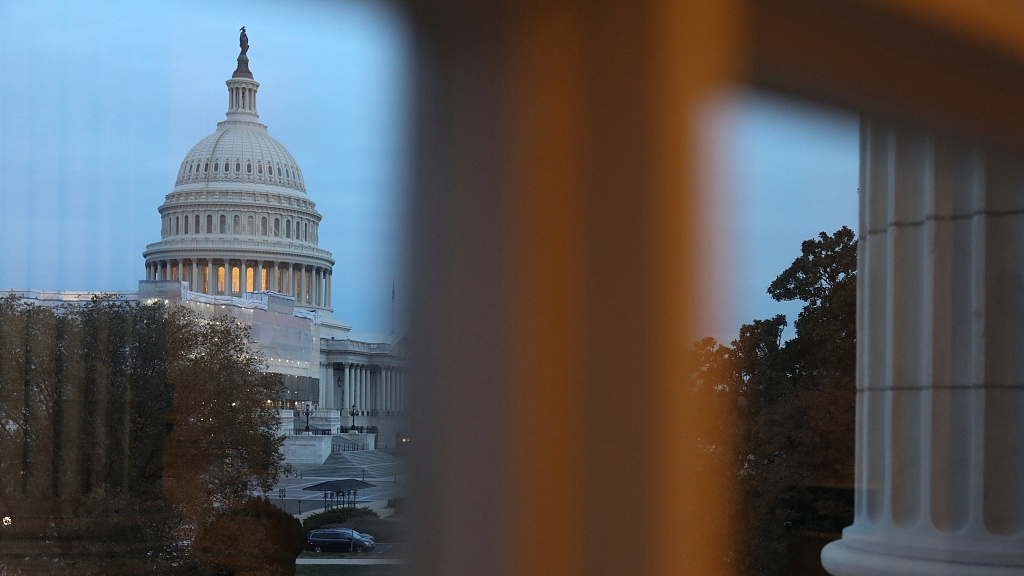
Editor's note: Bradley Blankenship is a Prague-based American journalist, political analyst and freelance reporter. The article reflects the author's opinions and not necessarily the views of CGTN.
A 2018 speech by Colonel Lawrence Wilkerson, former chief of staff to former Secretary of State Colin Powell, has resurfaced that suggests a U.S. intelligence-driven conspiracy in China's Xinjiang Uygur Autonomous Region. This has at least been the interpretation by many online.
In it, Wilkerson said that if the U.S. Central Intelligence Agency (CIA) wanted to destabilize China, the best way would be to mount an operation using Uygur Muslims in Xinjiang.
"They would foment unrest and to join with those Uygurs in pushing the Han Chinese in Beijing from internal places rather than external," he said.
I actually referenced Wilkerson last year in a column for CGTN, where I said, based on his assessment, that at least some part of the U.S. military sees its position in Afghanistan as important to potentially counter China's Belt and Road Initiative (BRI) in Central Asia through military means or destabilize China through CIA operations in Xinjiang.
In an email exchange with Colonel Wilkerson, he told me, as was stated in the video of his speech, that his statement at the time did not necessarily imply that the U.S. was engaging in counterintelligence operations in Xinjiang. Rather, his remarks outlined a strategic approach that some in the Pentagon had no doubt contemplated as an option.
He said, "My strong implication was – and still is – that despite Pentagon strategic thinking, the U.S. has no strategy in Afghanistan. In fact, that was the overall title and topic of my speech: no strategy in Syria, Iraq, or Afghanistan, just repeated years of troop presence and casualties."
Here, it's important to understand the U.S. government and how it operates. Public policy in America is complicated; it's a mish-mash of competing interests all vying for their desired outcomes. Foreign policy is no different and, in that particular realm, the national security state consists of many organizations with different strategies, aims and objectives each with their own desired outcomes. The Pentagon and CIA are two different organizations – and often their goals are different, too.

The U.S. Capitol in Washington, U.S., November 15, 2019. /VCG
The U.S. Capitol in Washington, U.S., November 15, 2019. /VCG
However, just because the U.S. has no unified objective in Afghanistan does not mean that the counterintelligence strategy in Xinjiang that Wilkerson outlined never took place.
Philip Giraldi, a former CIA Operations Officer with extensive experience in Europe and the Middle East, told me, "It is certainly very likely as [the] CIA regularly uses dissidents in any target country to gather information," but that he had no knowledge on this particular topic.
Wilkerson also made clear to me, "You will never get me to declare that the possibility that the CIA is engaged in a rogue operation, or even one ordained at the highest level, against China is impossible. All I would say about such a covert operation is that it would be doomed to failure – as almost all CIA ops have proven to be in the past two decades, whether in Iraq, Syria, Iran, or Venezuela."
So, we know at the very minimum that the U.S. military, at least at the Pentagon, sees using the Uygur Muslim minority in Xinjiang to interfere in China as a viable strategy, that such a strategy would fit into a recurring theme and that it is certainly not impossible, perhaps even likely, that this took place or is taking place.
It becomes very hard to see China's de-radicalization programs in Xinjiang as a "genocide" from this perspective and, furthermore, it underscores why China has a legitimate national security interest in promoting national unity in Xinjiang if Pentagon strategists see it as a weak link.
When asked about whether the stories about alleged human rights abuses against Uygur Muslims in Xinjiang had a U.S. counterintelligence streak to them, at least Giraldi seemed to think so.
According to Giraldi, "The stories are press placements that are being promoted by the UK and U.S. primarily. They usually contain a kernel of truth wrapped up in a tissue of lies."
The purpose of these "press placements" would obviously be to contain China by creating a scandal that would force countries to question their relationship with China, which we can see happening now with the EU parliamentarians that want to sink the China-EU Comprehensive Agreement on Investment as a result of China's countermeasure to push back against the human rights abuse allegations.
This highlights why China's resistance to these allegations is of such importance, since they are clearly being driven by U.S. intelligence.
For his part, Wilkerson expressed serious doubt about the report authored by Adrian Zenz that is the basis for the U.S.' genocide allegation in Xinjiang. "I would not trust that report any further than I could spit," he told me.
(If you want to contribute and have specific expertise, please contact us at opinions@cgtn.com.)

